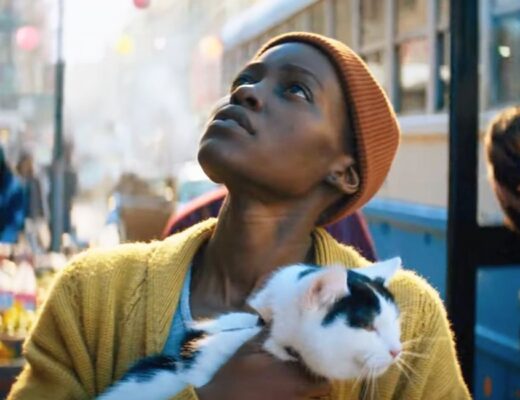Little Fish is a pointless exercise in bleakness that boasts neither interesting characters nor much visual character.
Chad Hartigan’s Little Fish dares to answer a question that not a single soul on the planet has ever asked or even pondered: What if Michael Haneke’s Amour instead featured…young people? That’s the hook of this sci-fi-tinged romantic drama, imagining a future where something referred to as Neuro-Informatory Affliction has ravaged the planet, rendering a large majority of the population with symptoms akin to those of dementia or Alzheimer’s. For some, the process is slow, memories of past events and loved ones fading bit by bit. For others, the disease afflicts like a switch, their entire mind wiped clean in an instant. It’s the former that tests the bonds of love between Jude (Jack O’Connell) and Emma (Olivia Cooke), newlyweds living in bliss, but whose world comes crashing down once Jude is diagnosed. The script, courtesy of Mattson Tomlin, takes a fractured approach to the events, presenting a series of flashbacks that detail how Jude and Emma met and fell in love. But the nonlinear storytelling does little to hide the fact that Little Fish is a deeply pedestrian love story merely gussied up with easy sci-fi trappings. There is nothing particularly unique or even interesting about either Jude or Emma, a detail which, in theory, could make them more relatable in an everyman and everywoman kind of way, but instead just renders their exploits wholly enervating.
With his past features This is Martin Bonner and Morris in America, Hartigan has demonstrated the ability to add welcome flavor to even the most shopworn stories, but aside from a brief use of split-screen during a passionate moment of love-making and a five-minute detour into Cronenbergian body horror — yes, it is exactly as jarring as it sounds — he does nothing to elevate or personalize the material. O’Connell and Cooke certainly make for a good-looking couple, and they possess a fair amount of chemistry together, but even they fail to overcome a story that seems to exist solely to depress viewers for 100 tedious minutes. There’s nothing to be gained from the experience, no greater message of the power of love or any other such point. The ending is especially stupid, featuring a twist that is supposed to reinforce the ways in which love manages to find a way, but instead is a mere gimmick that most viewers will be able to spot from a mile away. Indeed, the biggest mystery here remains how O’Connell has yet to find a project worthy of his considerable talents after his explosive performance in Starred Up. Written and filmed pre-pandemic, any allusions to current events taking place that are glimpsed in Little Fish are purely coincidental; the only commonality is that you pray for both of them to end as quickly as possible.







